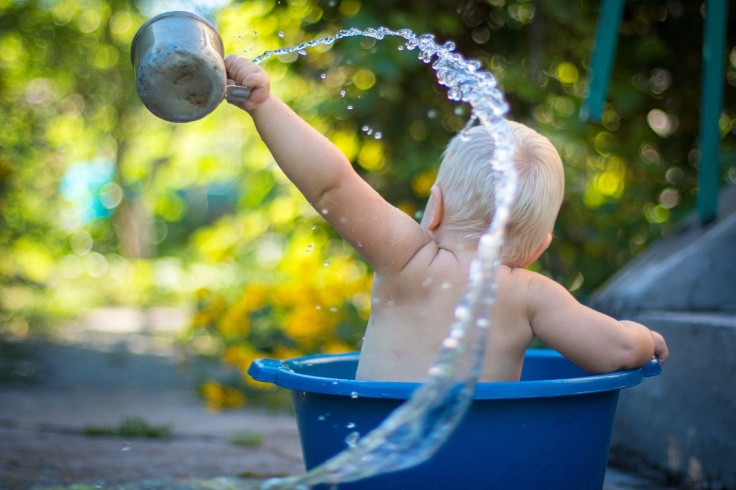What Is Aquagenic Urticaria? Rare Condition Makes Child Allergic To Water

It is typical of babies to throw tantrums and cry to send across their message, but imagine if every time their skin broke into a rash. This is the case of 18-month-old Ivy Angerman.
The Minnesota toddler’s parents were shocked to find that their daughter would suffer from blisters every time they gave her a bath. The same symptoms arose when she cried or started sweating.
Doctors have now been able to identify Ivy’s problem as aquagenic urticaria (AU), a rare condition in which a person is allergic to water. According to local news station Fox 9, they believe she may be the youngest person ever to be diagnosed with this disorder.
“It’s really hard, it breaks my heart, everything about it makes me upset,” Brittany Angerman, the girl’s mother told reporters. She had been trying to teach her daughter not to cry so as to prevent future outbreaks.
"Is she ever going to be able to go to daycare? Is she ever going to be able to go to public school? Is she able to ever go in the ocean? I don't know."
Brittany, along with her husband Dan took videos showing how Ivy could last only 15 minutes in the water before the symptoms would start showing.
The young girl has been put on a prescription of antihistamines meant to reduce allergic reactions. Doctors have recommended that the family stay in a home with a central air system and only purified water be used for her baths and consumption.
A 2011 case study published in the Annals of Dermatology claimed that since 1964 less than 100 cases have been reported.
According to the Genetic And Rare Diseases Information Center (GARD), aquagenic urticaria typically affects women but the symptoms start showing only around the time they reach puberty. When the person gets in contact with water, small red or skin-colored welts form — typically on the neck, upper trunk and arms. In some cases they can also form on other parts of the body.
These rashes normally last for 30 minutes to an hour before fading away.
Considering how rare this condition is, not much information is easily available regarding causes and treatment. GARD suggests that AU can be triggered by other substances in the water like chlorine. Based on this, the hives are not caused by water, specifically, but rather an allergen in the water. Another theory is that the skin itself generates a toxic material when it interacts with water. Neither explanation is supported by enough scientific proof.



























